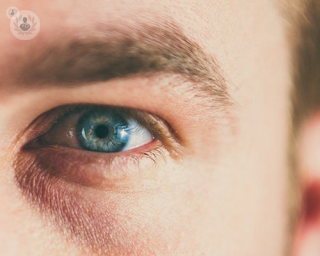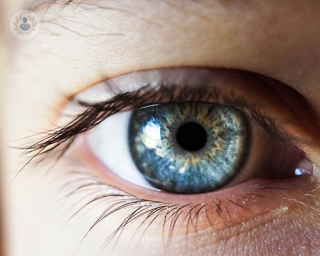
Por Mr Adam Bates
25.06.24
офтальмология
An introduction to cornea transplant surgery
A cornea transplant, also known as keratoplasty, is a surgical procedure designed to replace part or all of a damaged cornea with healthy donor tissue. The cornea, the transparent, dome-shaped surface of the eye, plays a crucial role in focusing light and ensuring clear vision. When the cornea becomes cloudy or scarred, vision can be significantly impaired. Undergoing a cornea transplant can restore sight, alleviate pain, and improve the appearance of a damaged or diseased cornea. Leading consultant ophthalmologist Mr Adam Bates explores the procedure.













